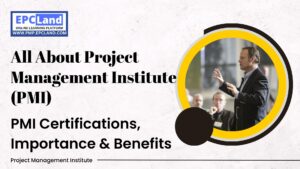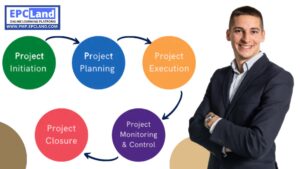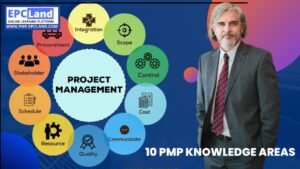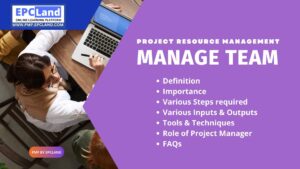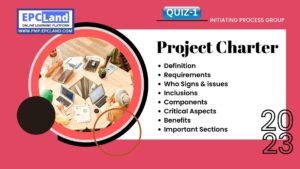Project management can be a complex process, and one of the key elements to success is developing a schedule that is both efficient and effective. A well-designed schedule process can help to ensure that projects are completed on time and within budget, while also helping to minimize delays and unexpected complications. However, developing a schedule process that works for your specific project and organization can be a challenge. In this guide, we will explore some best practices and strategies for developing a schedule process that is tailored to your needs and helps you achieve your project management goals. From understanding the importance of clear communication and goal setting to learning how to use project management software and tools, this guide will provide you with the insights and knowledge you need to succeed.
What is the Importance of “Develop Schedule Process” in Project Schedule Management
Developing a schedule process is important in project schedule management as it helps to ensure that projects are completed on time and within budget. A well-designed schedule process can help to minimize delays and unexpected complications, and ensure that all stakeholders are aware of the project’s progress and any changes to the schedule.
Furthermore, a schedule process can help to establish clear milestones and deadlines, which can be used to measure progress and make adjustments as needed. Additionally, a schedule process provides a framework for effective communication and collaboration, which is crucial for the successful completion of any project.
Also, developing a schedule process enables project managers to identify and mitigate risks, ensuring that the project stays on track and all stakeholders are aware of any potential issues that may arise. By having a schedule process in place, project managers can proactively manage resources and allocate them effectively, thus increasing the chances of project success.
Overall, developing a schedule process is a key aspect of project schedule management as it helps to ensure that projects are completed on time and within budget, while also improving communication, collaboration, and risk management.
Attempt Quiz-1 on Develop Schedule Process
What are the Various Steps required in the “Develop Schedule Process” in Project Schedule Management
There are several steps that are typically involved in developing a schedule process in project schedule management. These steps include:
- Define the project scope and objectives: The first step in developing a schedule process is to clearly define the project scope and objectives. This includes identifying the project deliverables, milestones, and deadlines.
- Break down the project into smaller tasks: Once the project scope and objectives are defined, the next step is to break down the project into smaller, manageable tasks. This will help to ensure that the project is completed on time and within budget.
- Establish dependencies and constraints: Establishing dependencies and constraints is crucial in developing a schedule process. Dependencies refer to tasks that must be completed before others can begin, while constraints refer to limitations that may impact the project schedule.
- Create a project schedule: Using the information gathered in the previous steps, create a project schedule that includes the tasks, dependencies, and constraints. This schedule should be shared with all stakeholders to ensure that everyone is aware of the project’s progress and any changes to the schedule.
- Monitor and adjust the schedule: Once the schedule is established, it is important to monitor and adjust it as needed. This includes tracking progress, identifying and addressing any issues, and making adjustments to the schedule as needed.
- Communicate the schedule: Regularly communicate the schedule to all stakeholders, including project team members, clients, and other relevant parties. This will ensure that everyone is aware of the project’s progress and any changes to the schedule.
- Review and refine the process: Finally, regularly review and refine the schedule process to ensure that it continues to meet the needs of the project and organization.
By following these steps, project managers can effectively develop a schedule process that helps to ensure the successful completion of their projects.
What are various Tools & Techniques used for “Develop Schedule Process” in Project Schedule Management
There are several tools and techniques that can be used to develop a schedule process in project schedule management. These include:
- Gantt Charts: Gantt charts are a popular tool for creating a visual representation of a project schedule. They show the tasks, their duration, and their dependencies in a simple and easy-to-understand format.
- Critical Path Method (CPM): The Critical Path Method (CPM) is a technique used to determine the most critical tasks in a project and the earliest and latest possible completion times for each task. It is useful in identifying and managing project constraints and dependencies.
- PERT (Program Evaluation and Review Technique): PERT is a technique used to create a visual representation of a project schedule and identify the critical path. It is useful in identifying and managing project risks and uncertainties.
- Project Management Software: Project management software such as Asana, Trello, MS Project, and Smartsheet can be used to develop, manage and communicate schedules. They can be used to create a schedule, assign tasks, track progress, and monitor the status of a project.
- Earned value management (EVM): Earned value management (EVM) is a project management technique that uses metrics such as planned value, actual cost, and earned value to measure project performance and progress. It helps in identifying variances in the schedule and cost of the project.
- Resource Allocation and leveling: Resource allocation and leveling is a technique used to ensure that project resources, such as personnel and equipment, are used efficiently. It helps in identifying and managing resource constraints and conflicts.
By using these tools and techniques, project managers can effectively develop a schedule process that helps to ensure the successful completion of their projects.
What are various Inputs required for “Develop Schedule Process” in Project Schedule Management
There are several inputs that are typically required for developing a schedule process in project schedule management. These include:
- Project charter: The project charter is a document that provides an overview of the project, including its scope, objectives, and stakeholders. This information is used to define the project schedule.
- Work breakdown structure (WBS): The work breakdown structure is a hierarchical representation of the project scope. It breaks down the project into smaller, manageable tasks, which are used to create the project schedule.
- Activity list: An activity list is a comprehensive list of all the tasks that need to be completed as part of the project. This information is used to create the project schedule.
- Resource list: A resource list is a comprehensive list of all the resources, such as personnel and equipment, that will be required to complete the project. This information is used to create the project schedule and to allocate resources effectively.
- Risk register: A risk register is a document that lists all the potential risks and their likelihood of occurrence. This information is used to identify and manage project risks, and to create a schedule that accounts for potential risks.
- Assumptions and constraints: Assumptions and constraints are factors that may impact the project schedule. These may include factors such as availability of resources, dependencies between tasks, and external factors such as weather.
- Project Management Plan: Project Management Plan is a comprehensive document that outlines how the project will be executed, monitored and controlled. It includes the project schedule, resource allocation and cost management plan, risk management plan, and quality management plan.
What are various Outputs required for “Develop Schedule Process” in Project Schedule Management
There are several outputs that are typically required for developing a schedule process in project schedule management. These include:
- Project schedule: The project schedule is a document that outlines the tasks, durations, and dependencies for the project. It serves as a roadmap for the project and helps to ensure that all tasks are completed in a timely manner.
- Resource calendar: A resource calendar is a document that shows the availability and allocation of resources, such as personnel and equipment, over the course of the project. It helps to ensure that resources are used efficiently and effectively.
- Schedule baseline: A schedule baseline is the approved version of the project schedule that will be used to measure progress and performance. It is used to track and monitor the project schedule and to identify any variances.
- Schedule data: Schedule data includes information such as start and end dates, durations, and dependencies for all tasks in the schedule. It is used to update the schedule and to communicate progress to stakeholders.
- Project schedule management plan: A project schedule management plan is a document that outlines how the schedule will be developed, monitored, and controlled. It includes information such as the schedule model, schedule compression techniques, and schedule change control procedures.
- Project documents updates: Project documents like risk register, Assumptions log, and other project management plan components should be updated based on the schedule development process.
- Schedule reports: Schedule reports are documents that provide information on the status of the project schedule, such as the critical path, progress, and variances. They are used to communicate schedule information to stakeholders and to identify any issues or risks that may impact the schedule.
By producing these outputs, project managers can effectively develop and manage a schedule process that helps to ensure the successful completion of their projects.
Attempt Quiz-2 on Develop Schedule Process
What is Role of Project Manager in “Develop Schedule Process” in Project Schedule Management
The project manager plays a critical role in the process of developing a schedule in project schedule management. Some of the key responsibilities of the project manager in this process include:
- Defining the project schedule: The project manager is responsible for defining the project schedule and ensuring that it aligns with the project charter and work breakdown structure. They work with the project team to identify the tasks, durations, and dependencies that are required to complete the project.
- Allocating resources: The project manager is responsible for allocating resources, such as personnel and equipment, to the project tasks. They use the resource calendar to ensure that resources are used efficiently and effectively.
- Creating the schedule baseline: The project manager is responsible for creating the schedule baseline, which is the approved version of the project schedule that will be used to measure progress and performance. They work with the project team to identify the critical path and to establish the schedule baseline.
- Managing schedule changes: The project manager is responsible for managing any changes to the project schedule. They use the project schedule management plan to ensure that changes are managed in a controlled and efficient manner.
- Communicating schedule information: The project manager is responsible for communicating schedule information to stakeholders. They use schedule reports to provide updates on the status of the project schedule and to identify any issues or risks that may impact the schedule.
- Monitoring and controlling the schedule: The project manager is responsible for monitoring the schedule and controlling it to ensure that the project is completed on time and within budget. They use schedule data and schedule reports to track progress and to identify any variances.
- Managing the schedule model: The project manager is responsible for managing the schedule model and ensuring that it is accurate and up-to-date. They use the schedule model to predict the duration of the project and the costs associated with it.
Final take Away on “Develop Schedule Process” in Project Schedule Management
“Developing a schedule in project management is crucial for the success of a project. Project manager leads the process, aligns schedule with project objectives, scope, and constraints. Effective schedule management ensures project completion on time, within budget and to the satisfaction of stakeholders. Use of appropriate tools and techniques such as Schedule Modeling, Schedule Network Analysis, Critical Path Method (CPM), Program Evaluation and Review Technique (PERT) is essential. Clear change management plan is necessary to handle schedule changes. “
FAQs on “Develop Schedule Process” in Project Schedule Management
- What is the purpose of the Develop Schedule process in project management? The purpose of the Develop Schedule process is to define, develop, and maintain a project schedule, which outlines the tasks, milestones, and deliverables that need to be completed in order to achieve the project objectives.
- Who is responsible for leading the Develop Schedule process? The project manager is responsible for leading the Develop Schedule process and working closely with the project team to ensure that the schedule is aligned with the project objectives, scope, and constraints.
- What are some of the tools and techniques used in the Develop Schedule process? Some of the tools and techniques used in the Develop Schedule process include Schedule Modeling, Schedule Network Analysis, Critical Path Method (CPM), Program Evaluation and Review Technique (PERT), Project Management Software, Resource Leveling and Resource Optimization Techniques.
- What are some of the inputs required for the Develop Schedule process? Some of the inputs required for the Develop Schedule process include the project charter, project scope statement, project management plan, project schedule model, and project schedule model data.
- What are some of the outputs of the Develop Schedule process? Some of the outputs of the Develop Schedule process include the project schedule, schedule model, schedule data, and project schedule model data.
- How does the Develop Schedule process help to ensure project success? The Develop Schedule process helps to ensure project success by defining the project schedule, allocating resources, creating the schedule baseline, managing schedule changes, communicating schedule information, monitoring and controlling the schedule, and managing the schedule model.










